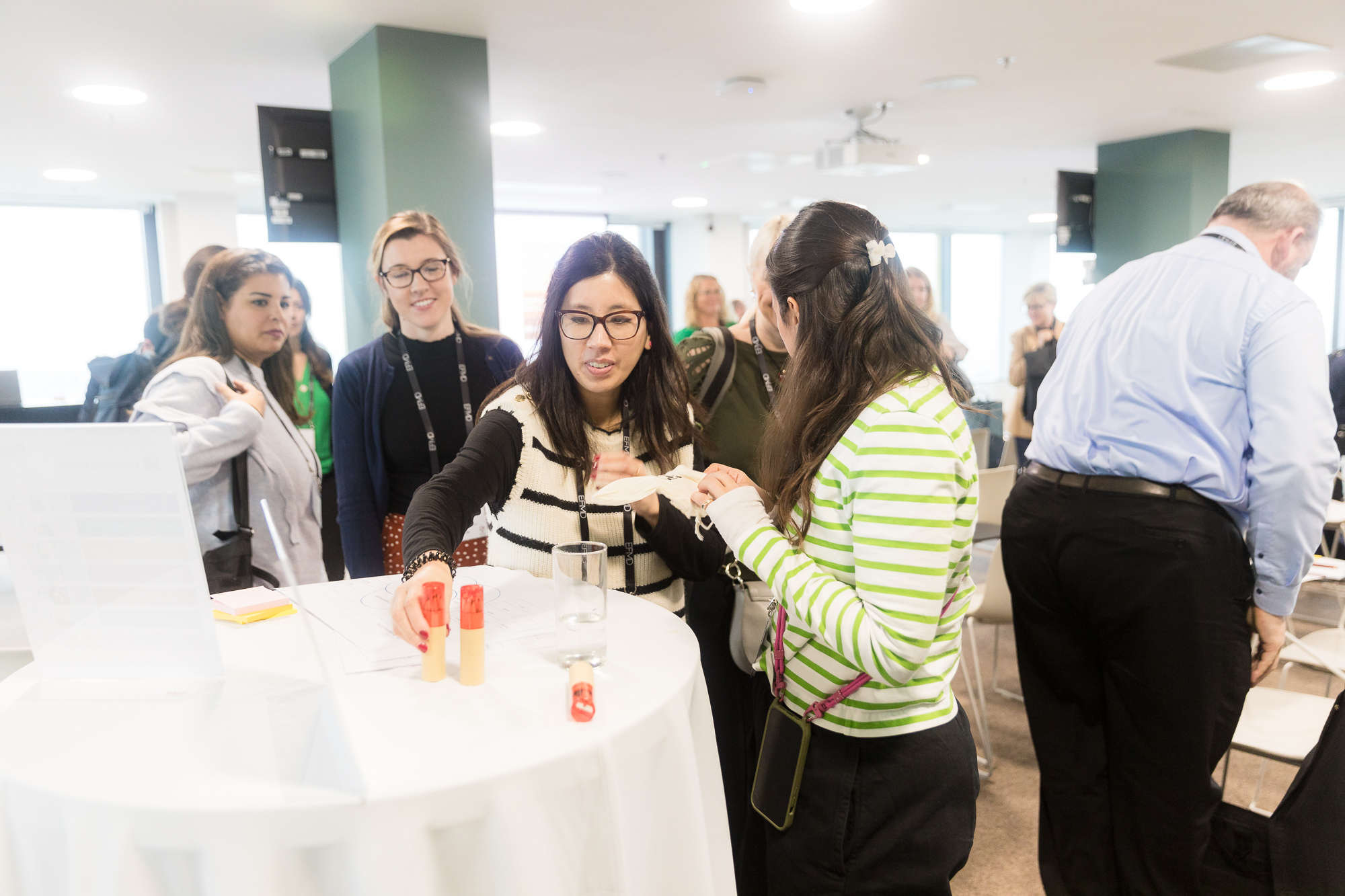The Future of Master’s Programs – Report on the EFMD Conference
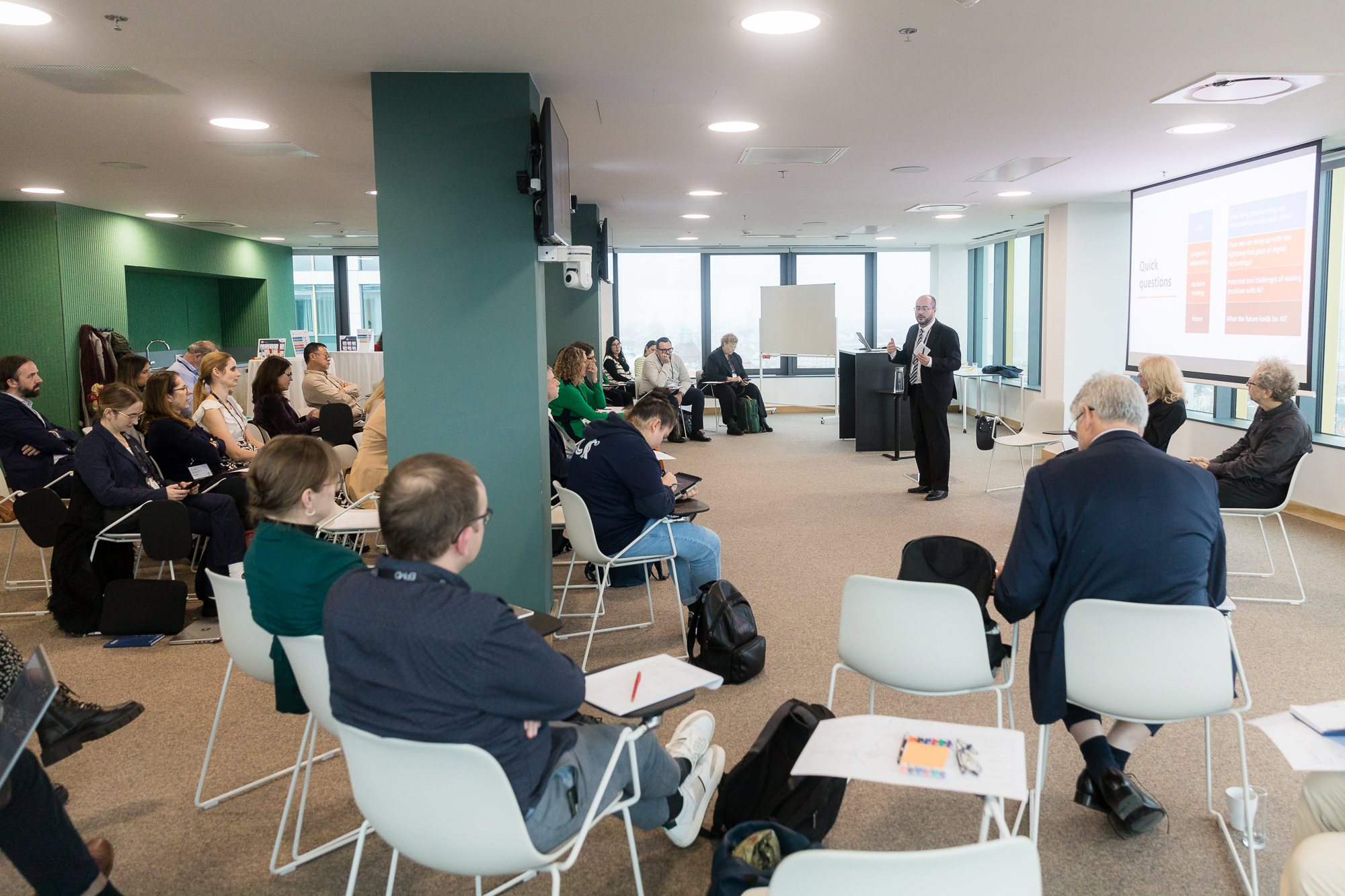
The role of AI in education
The panel discussion on 5 December featured two participants: Csaba Csáki, the Chair of the Artificial Intelligence Committee from the Department of Information Systems at the Institute of Data Analysis and Information Systems Corvinus University, and Zsuzsanna Vitai, Professor at the Department of Leadership and Organizational Sciences at the University of Pécs. The session was moderated by Dániel Havran, Dean of Master Programmes at Corvinus University of Budapest. The experts discussed how artificial intelligence can be applied in education, how it can assist the work of teachers and students, and the challenges it poses.
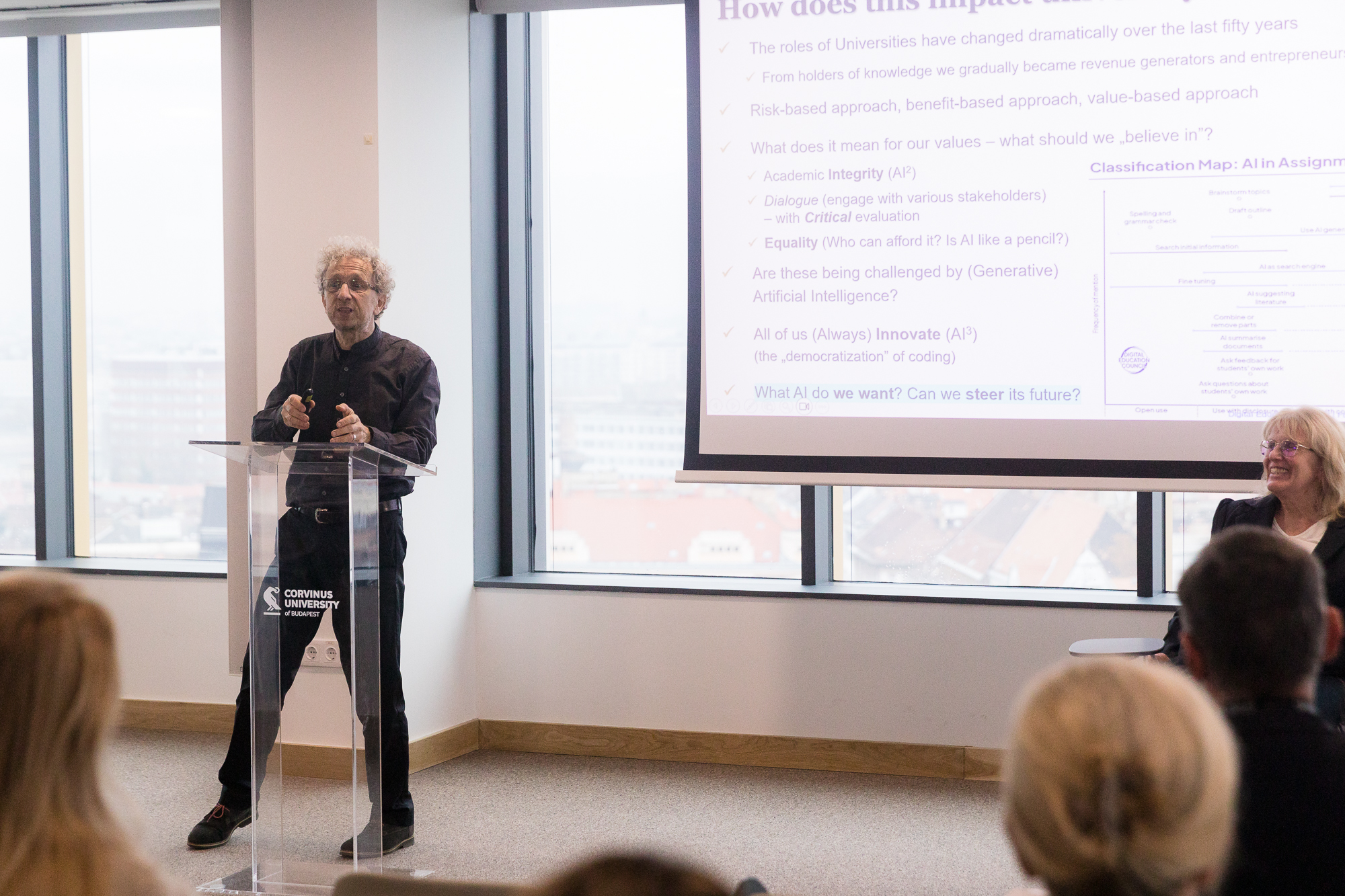
Zsuzsanna Vitai is an experienced AI user, therefore, she shared how she applies artificial intelligence in her work. She primarily uses it to create questions and test tasks and strives to teach her students the ethical use of AI. She emphasized that AI is not just a tool, but rather a partner that can help to understand the subject matter better. AI is capable of recognizing patterns that the human eye would not notice, and it also provides feedback and new explanations with unlimited patience. Zsuzsanna Vitai also mentioned the two forms of learning to achieve declarative and procedural knowledge. She emphasized that firstly the brain places information into short-term memory, which can be transformed into long-term memory through practice. AI can also help with this, as its use can make both the learning and practice process more efficient and personalized.
The relationship between teachers and students was also discussed, as the spread of AI technology has significantly changed their traditional dynamic. Csáki Csaba explained that lecturers and students therefore communicate with each other in a different way. Furthermore, the use of AI is not always evident in homework or academic work, so it is worth introducing and enforcing precise rules on AI use as soon as possible. It might be advisable for teachers to treat AI as a kind of colleague that complements their work but does not replace them. Zsuzsanna Vitai also added that from an educator’s perspective, AI should be seen as a source of inspiration, continuously opening new perspectives in the process of learning and teaching.
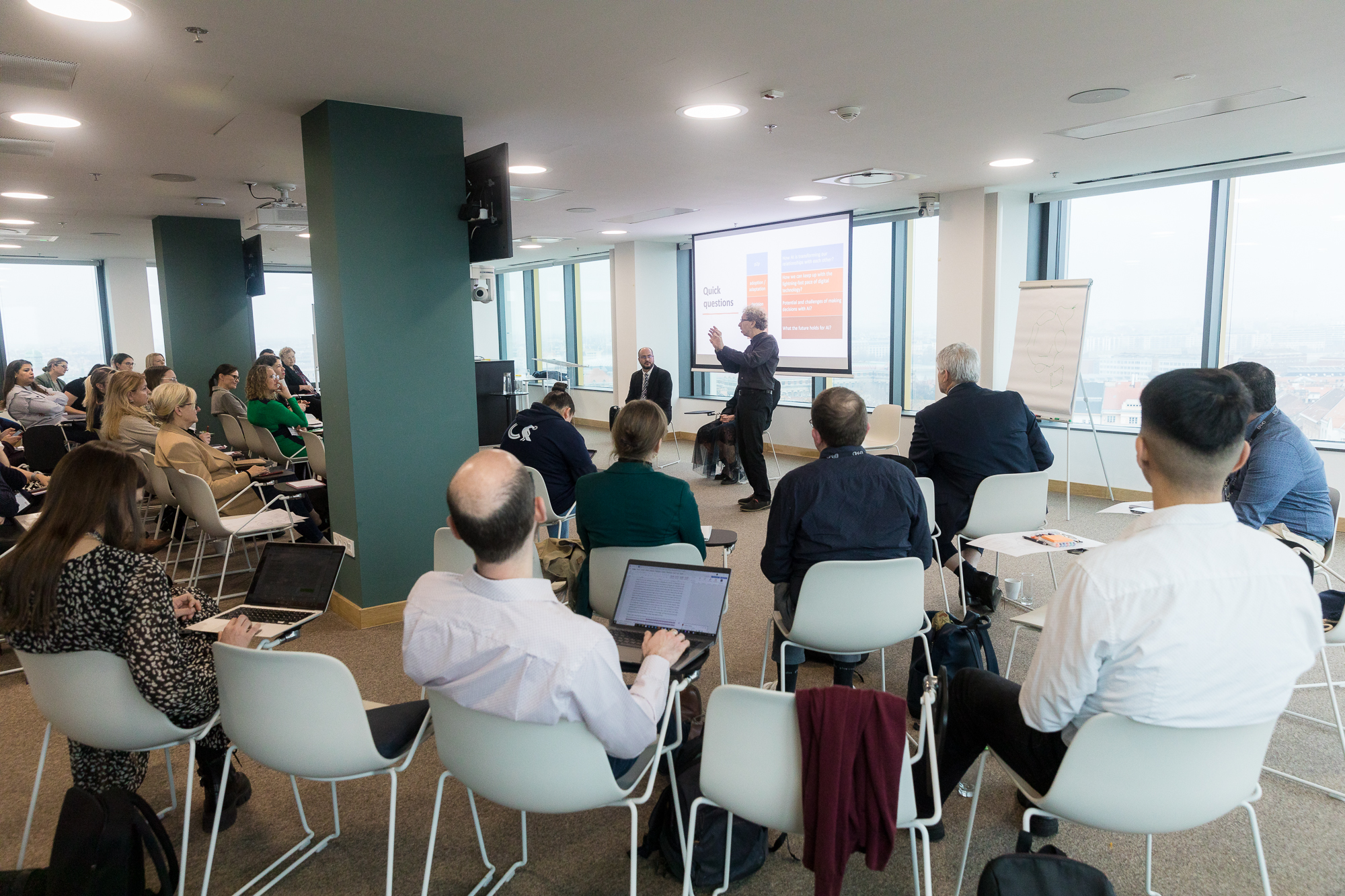
The question of the environmental impact of AI also came up during the panel discussion. The participants agreed that the spread of artificial intelligence could impose additional burdens on the planet, but it also opens new opportunities in the field of sustainability.
Regarding the often-mentioned ethical challenges of AI, Csaba Csáki pointed out that AI is not a neutral technology but rather a product developed by large corporations, often based on inadequate databases. Therefore, AI must be critically examined as both a technology and a product, as it carries inherent values, and its effects can be complex. He considers the relationship between AI and the labor market to be two-edged, considering that while AI can help make HR processes more efficient, such as filtering resumes received for job postings, it can also create opportunities for the abuse of its use, for example, by favoring resumes generated by AI. Zsuzsanna Vitai emphasized that we cannot blame technology for inequalities, but rather we should criticize the improper use of it by people. Additionally, Csaba Csáki pointed out that the data and results generated by AI are often not transparent, just like their sources, which raises ethical and reliability issues. Regarding academic integrity and the ethical issues of AI, he also predicted that regulating the application of artificial intelligence and educating on its proper use will be crucial in the future.
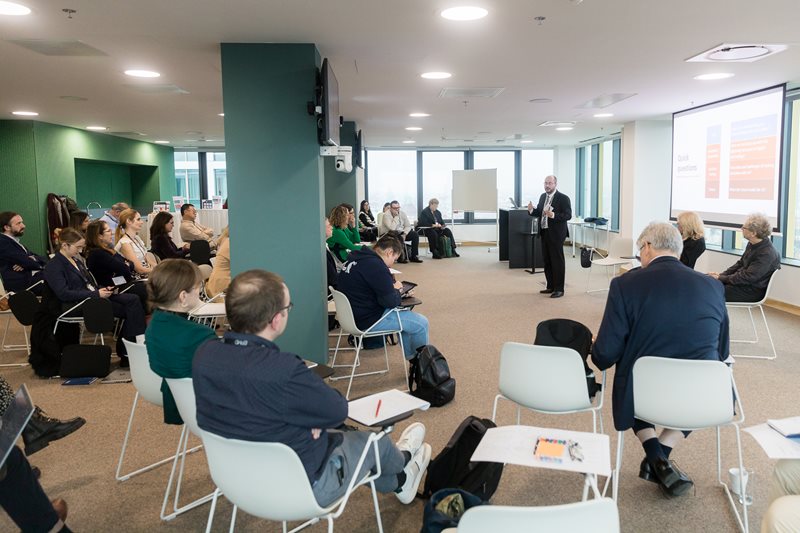
At the end of the conversation, the panelists also touched on the future of the curriculum and the labor market. They emphasized that integrating AI into the curriculum will be fundamental for the future of education. With the help of AI, students can not only acquire new knowledge but also develop critical thinking skills. The event also highlighted that AI is fundamentally changing not only education but also the labor market. The main challenges include ethical use, maintaining academic integrity, and reducing negative environmental impacts. At the same time, AI opens opportunities for educators and students to work together and support each other to achieve the best results.
Personalized student experiences at Corvinus – Introducing the Navigator project
One of Corvinus University’s latest innovations is the MyCorvinus Navigator program, which aims to personalize the student experience. The initiative combines the support of digitalization, mentoring, and personal development and also emphasizes the support of students’ careers. Dávid Baranyai, Director of Corporate and Institutional Relations at Corvinus University of Budapest, and Katalin Ásványi, Head of the Department of Sustainability Management and Environmental Economics and the Business Manager of MyCorvinus Navigator, presented the Navigator program. The event was moderated by Daniel Havran, Dean of r Master Programmes at Corvinus University.
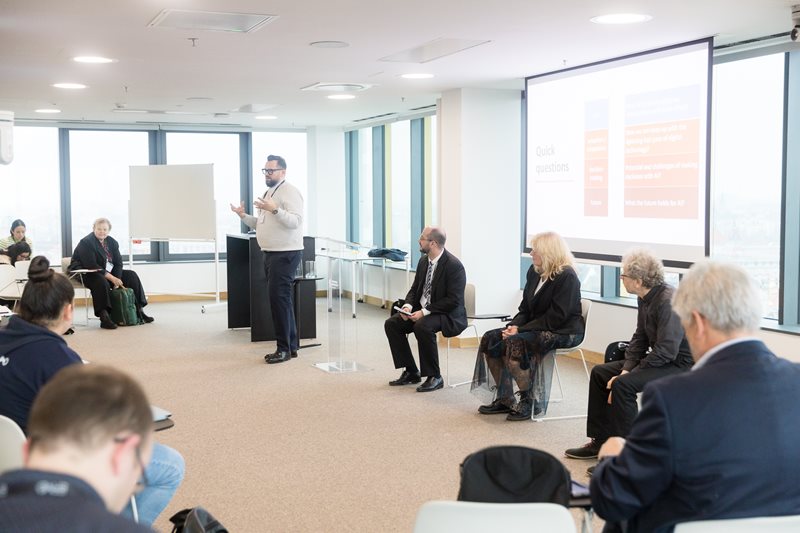
Katalin Ásványi presented the essence of the MyCorvinus Navigator system, specifically developed to support students’ career paths. The project’s goal is to provide personalized assistance to students in planning their learning and careers. It consists of three stages: profile creation, career planning, and mentoring. Dávid Baranyai presented collaboration opportunities with corporate partners through the Navigator program. The Navigator uniquely connects students with the labor market, helping them to get in touch with companies interested in their competencies based on their personalized profiles. The MyCorvinus Navigator is an innovative, scientifically grounded system that offers a personalized approach to students, which can positively influence not only their studies but also their future careers. The system is a unique combination of technology and mentoring that could set a new standard in the field of education.
